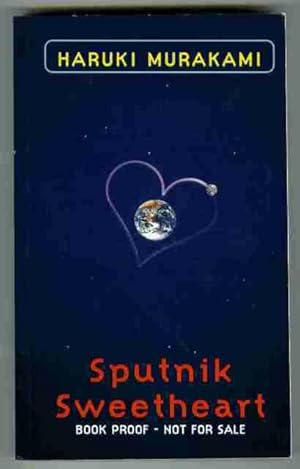


Most of Murakami’s work revolves around a common theme - the sense of isolation people feel and how easy it is for this loneliness to break your spirit and leave you little more than an empty shell. It made me sense my loss differently and for that I am grateful to Murakami and will always be. I re-read Sputnik Sweetheart and read it again and everytime I read it, it made me feel better. Right after I finished the book, I lost my father and felt the biggest sense of loss in my life – it was as though the sense of loss that ran through the book had engulfed my life and I did not know where to go or what to do. The story spoke to me and I wanted to read it. I remember when I first ordered this book from Amazon in 2001 on a whim. "About this title" may belong to another edition of this title.I went back to reading my favourite book in the whole wide world – Sputnik Sweetheart, when faced with a reader’s block and it uplifts me everytime.

And by toning down the pyrotechnics of his earlier work, Murakami has created a world that is simultaneously mundane and disturbing-where doppelgängers and vanishing cats produce a pervasive atmosphere of alienation, and identity itself seems like a terribly fragile thing. Like the satellite of the title they are essentially alone.

Characters struggle to connect with one another but never quite succeed. Sputnik Sweetheart is a melancholy love story, and its deceptively simple prose is saturated with sadness. And there he discovers two documents on her computer, one of which reveals a chilling secret about Sumire's lover. Sumire is suddenly smitten with a sophisticated businesswoman and accompanies her love object to Europe where, on a tiny Greek island, she disappears "like smoke." The schoolteacher hastens to the island in search of his friend. The narrator is a teacher whose only close friend is Sumire, an aspiring young novelist with chronic writer's block. "We were nearly boundless zeros, just pitiful little beings swept from one kind of oblivion to another." "There was nothing solid we could depend on," the reader is told. Shorter than the sweeping Wind-up Bird Chronicle, less playfully bizarre than A Wild Sheep Chase, the author's seventh novel distills his signature themes into a powerful story about the loneliness of the human condition. Sputnik Sweetheart finds Haruki Murakami in his minimalist mode.


 0 kommentar(er)
0 kommentar(er)
